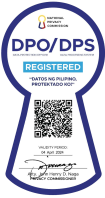Financial Adviser: 5 Things to Know About Injap Sia’s Hotel 101 Nasdaq Listing and How You Can Profit from It

ILLUSTRATION: Igi Talao
In a landmark moment for Philippine business, Hotel101 Global, the international hospitality arm of DoubleDragon Corporation, is making history as the first Filipino-owned company to list on NASDAQ. On June 27, Hotel101 will begin trading under the ticker HBNB, following its merger with JVSPAC Acquisition Corporation, a U.S.-based special purpose acquisition company (SPAC).
With a projected equity value of $2.3 billion, the listing instantly puts Hotel101 on the global investment map—alongside some of the most recognized tech-enabled hospitality brands.
But beyond the headlines, this deal is more than a corporate milestone. It’s a playbook on how an emerging Philippine company can leap into the global capital markets and tap into cross-border investor interest.
This is not your typical IPO. Structured as a SPAC merger, the transaction allows Hotel101 to bypass the lengthy traditional listing process and go public swiftly. If all goes according to plan—with a shareholder vote slated for June 24—the Philippine-born hotel brand will join the ranks of innovative, asset-light, tech-driven companies that have captured Wall Street’s attention.
So what does this mean for Filipino investors, global observers, or even travelers curious about the brand’s international footprint? More importantly, how can you benefit from this first-of-its-kind listing?
Here are 5 key things to know about the Hotel101–NASDAQ debut—and what you should watch for if you're thinking of investing, analyzing the business, or simply understanding the opportunity behind this billion-dollar hospitality platform.
ALSO READ
Financial Adviser: 5 Business Lessons Everyone Can Learn from the Founders of Papemelroti
1| Know how SPACs work—and how this benefits Hotel 101
To understand Hotel101 Global’s upcoming debut on NASDAQ, you first need to understand what a SPAC is.
A Special Purpose Acquisition Company is essentially a publicly traded “blank check” company. It raises funds from investors through an IPO but has no operations of its own. Its sole purpose is to find a private company to merge with—helping that company go public without going through the traditional IPO process.
In this case, the SPAC is JVSPAC Acquisition Corporation, a U.S.-based shell company that raised approximately $57.5 million from investors. JVSPAC’s management team then searched for a promising business to acquire—and found it in Hotel101 Global, a fast-scaling, tech-driven hospitality platform wholly owned by DoubleDragon Corporation.
Instead of launching its own IPO, Hotel101 Global agreed to merge with JVSPAC. This means that JVSPAC shareholders will soon own shares in the combined entity—now renamed Hotel101 Global Holdings, with the stock ticker HBNB on NASDAQ.
For DoubleDragon, this route offers a faster, more efficient way to list globally—unlocking value and global visibility for its hotel brand, without the complexity and scrutiny of a traditional IPO roadshow.
After the merger closes, DoubleDragon will retain about 75 percent ownership of the newly listed company, preserving majority control while gaining access to U.S. capital markets.
In other words, the SPAC structure allowed DoubleDragon’s Hotel101 to skip the long wait, step onto a global stage, and potentially attract more international capital—all in one move.
2| Know how to understand a market debut
When we say that Hotel101 Global will be listed on NASDAQ on June 27, it means that this is expected to be the first official day its shares will be available for public trading on the U.S. stock exchange, under the ticker symbol HBNB. This is a major milestone not just for the company, but for the entire Philippine business community—marking the first time a Filipino-owned firm will be listed on NASDAQ.
But before Hotel101 reaches that point, several steps must take place. First, the U.S. Securities and Exchange Commission (SEC) reviewed and approved the necessary registration documents (Form F-4) as of June 2, which allows the merger to move forward legally.
The next key step is the shareholder vote on June 24, where investors in JVSPAC Acquisition Corporation—the U.S.-listed shell company Hotel101 is merging with—will decide whether to approve the merger deal. If shareholders vote yes, the merger can officially close during the next two days, on June 25 and 26, completing all final legal and administrative requirements.
Then comes June 27, the expected listing day. This is when Hotel101, through its merger with JVSPAC, officially becomes a NASDAQ-listed company. From that day onward, its shares will be publicly traded under the symbol HBNB, and anyone—including U.S. and international investors—can buy and sell shares of the company on the open market.
3| Know how to unlock global growth and launch an international brand
The NASDAQ listing of Hotel101 Global isn’t just a symbolic achievement—it’s a game-changing financial strategy for both Hotel101 and its parent company, DoubleDragon Corporation. Now listed under the ticker HBNB, Hotel101 Global becomes a U.S.-based public entity with direct access to international capital markets.
This allows it to raise funding not just through traditional equity, but also through tools like bonds, convertible notes, follow-on offerings, or private investments in public equity (PIPEs). It can also begin building relationships with U.S. banks and lenders by laying the groundwork for future borrowing and financing on American terms.
This is especially important as the company gears up to expand into high-growth markets such as Japan, Spain, and the U.S.—where capital needs are large and fast-moving. To support this global push, Hotel101 Global has identified 25 priority countries for its medium-term expansion, with the long-term goal of establishing a presence in 100 countries by 2050, operating up to one million standardized “Happy Rooms.”
As of December 31, 2024, the company has already established marketing offices in Singapore, the Philippines, Madrid (Spain), Niseko (Japan), and Hong Kong, and has signed leases for offices in Dubai (UAE) and Taipei (Taiwan). These offices serve as localized distribution hubs, hosting marketing events, onboarding agents, and introducing Hotel101’s condotel business model to potential joint venture partners and franchisees.
Through this infrastructure, Hotel101 not only strengthens its sales pipeline but also builds the foundation for sustainable brand equity in each strategic market. This global network will be critical to executing its expansion strategy and scaling the brand efficiently across continents.
For DoubleDragon, the listing brings powerful indirect benefits. While it may not be able to borrow directly from U.S. banks unless it sets up a legal presence or provides guarantees through Hotel101, it now owns a controlling stake in a NASDAQ-listed company. This enhances DoubleDragon’s balance sheet, boosts its overall valuation, and strengthens its position when seeking financing either in the Philippines or abroad. That stake in HBNB can also serve as collateral or equity backing for loans or other funding arrangements.
Beyond balance sheet strength, the listing also improves DoubleDragon’s reputation and creditworthiness, showing lenders and investors that it has exposure to a global, transparent, and regulated capital market.
In the long term, the listing opens more strategic options. Hotel101 can attract global investors, tap institutional capital, and possibly issue bonds to finance new developments. DoubleDragon, meanwhile, may eventually monetize part of its stake or use it to secure better terms across its other business lines.
While there are limitations, such as the need for Hotel101 to build its own U.S. credit history and comply with regulatory standards, the overall effect is a significant boost in flexibility, credibility, and financial strength.
Simply put, the listing is more than a one-time event; it’s a financial lever that can accelerate growth for both the brand and the broader DoubleDragon group.
4| Know how to justify a startup’s valuation before it goes public
One straightforward way to approximate Hotel101 Global’s implied valuation in the merger is by looking at the cash contribution from JVSPAC relative to the total post-merger valuation. The merger announcement places the combined company’s equity value at $2.3 billion. Meanwhile, JVSPAC holds approximately $57.4 million in trust—representing the cash that will be injected into the merged entity, assuming no major redemptions.
If we deduct the SPAC’s $57.4 million cash from the $2.3 billion valuation, we arrive at an implied valuation of USD2.2426 billion for the Hotel101 business contributed by DoubleDragon. This means DoubleDragon is effectively exchanging its Hotel101 Global subsidiary—valued at over $2.24 billion for a controlling stake in the publicly listed company, which in this case, we will assume 75 percent share with the remaining 25 percent going to the SPAC public shareholders and sponsors in return for their capital and role in the listing.
This approach reflects how most SPAC transactions are structured: the SPAC typically receives a minority stake (often between 15 percent and 25 percent) in exchange for bringing in a relatively small amount of cash versus the operating company’s much larger business contribution.
Now, to understand the logic behind Hotel101 Global’s $2.24 billion valuation ahead of its NASDAQ listing, we performed a reverse discounted cash flow (DCF) analysis wherein we assume a 10 percent discount rate over 10 years and a terminal EBITDA multiple of 15x. Under these assumptions, the business would need to be generating approximately $71 million in annual EBITDA to justify its present value. However, given that Hotel101’s current revenue base is still small—many of its flagship properties in Japan, Spain, and the U.S. are still under construction—this valuation is clearly forward-looking. It reflects a long-term projection of where the company could be in five to 10 years, not where it is today.
The implied valuation suggests that first, Hotel101 will expand aggressively. Hotel101 has publicly announced its goal to operate one million rooms in 100 countries by 2050. While that target is decades away, investors are likely pricing in rapid expansion in the near term. This includes the successful rollout of multiple properties annually, particularly in high-value markets like the U.S. and Japan, and the adoption of an asset-light expansion model via joint ventures and franchise agreements. This would allow the company to scale without absorbing all development costs by keeping capital expenditures lower while increasing footprint quickly.
Second, the model suggests high operating margins. Hotel101’s standardized “Happy Room” format and central tech-driven model point to a cost-efficient operation. Investors may be assuming EBITDA margins in the 30 to 40 percent range, which is ambitious but plausible for a hospitality platform that minimizes variability in room design, streamlines staff training, and automates reservation and pricing systems.
This operational consistency contributes to strong economies of scale, which are central to achieving the $71M EBITDA needed to support the valuation.
Third, the model assumes that there will be steady revenue growth. To reach the required earnings within the projected timeframe, Hotel101 would need to grow revenue at an estimated 20 to 30 percent compound annual growth rate (CAGR). This growth could be fueled by increasing occupancy rates, rising average daily room rates (ADR) in international markets, and growing recognition of the Hotel101 brand. Its marketing offices in Singapore, Madrid, Dubai, and other locations further reinforce the intent to capture new demand and build pipeline visibility.
Fourth, the reverse DCF also assumes a 10 percent discount rate and an exit multiple of 15x EBITDA by Year 10—parameters often used for fast-growing, tech-enabled or asset-light platforms. The exit multiple reflects expectations that Hotel101 will eventually be seen alongside franchise-based hospitality platforms like Marriott or hybrid models like Airbnb, given its global ambition and standardized offering.
Finally, the valuation likely embeds a premium for optionality—the future potential to monetize the Hotel101 brand beyond room bookings. This could include technology licensing, proprietary booking systems, property development platforms, or even real estate tokenization down the line. The potential to generate franchise income and to address a global gap in the affordable travel segment also contributes to this optionality value.
5| Know how to uncover hidden value in stocks and tap into equity update potential
Assuming Hotel101 Global is valued at $2.3 billion after its merger with JVSPAC and that DoubleDragon retains a 75 percent ownership stake post-listing, this implies DoubleDragon’s interest in the NASDAQ-listed entity would be worth approximately $1.725 billion.
With 2.345 billion common shares outstanding, that translates to an implied value of roughly $0.735 per DD share, or approximately P42.63 per share using an exchange rate of P58 to $1. This valuation reflects only its stake in Hotel101 Global and excludes DoubleDragon’s other core businesses such as CityMall, CentralHub, and DD Meridian Park.
Comparing this with DoubleDragon’s current market capitalization of P42 billion, based on a share price of P13.60, reveals a substantial valuation gap. Based on the implied Hotel101 value alone, DoubleDragon shares are trading at a 67 percent discount to the embedded value of its stake in the soon-to-be NASDAQ-listed entity. This indicates that the market has yet to price in the potential value uplift from the U.S. listing or is heavily discounting future execution risks and uncertainties.
Now, if we incorporate DoubleDragon’s book value of equity as of end-2024, which stands at P54.585 billion, the case for undervaluation becomes even more compelling. Combining the book value and the P100.05 billion implied value of its Hotel101 stake results in a total theoretical value of P154.64 billion. In this context, the stock is trading at a 72.8 percent discount to its total embedded value, which signals significant upside potential if investor confidence strengthens and the market begins to price in both the Hotel101 listing and DoubleDragon’s broader asset base.


